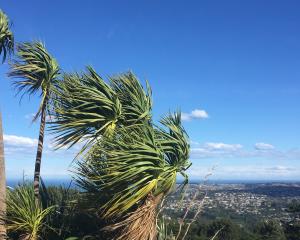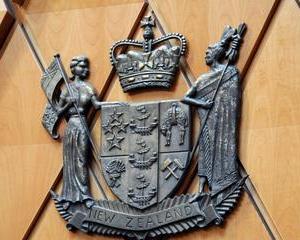The fire danger remained high elsewhere in Otago, despite some rain last week, Otago Rural Fire Authority principal rural fire officer Stephanie Rotarangi said last night.
Coastal Otago and North Otago remained very dry and the Central, Clutha and Coastal fire zones remained in a restricted season.
The authority was monitoring fire danger hourly during some days, Dr Rotarangi said.
With the Wakatipu Basin in the grip of El Nino, residents and visitors are being warned about the dangers of sparking fires.
Otago Rural Fire Authority deputy rural fire officer Jamie Cowan, of Queenstown, said the fire risk was fluctuating between very high and extreme.
"We are significantly drier here in the Wakatipu Basin than we have been for the last six or seven years.
"We normally peak in early February, but we're already well above last year's peak.''
Firefighters had attended 10 vegetation fires in Wakatipu in the past week caused by fireworks, campfires and the reignition of permitted burn-offs.
"People need to recognise just how dry it is and common sense should prevail.
"Fireworks certainly shouldn't be let off anywhere in the Southern Lakes.''
No fire permits had been issued since December 20, and an official fire ban would come into force this weekend.
He advised against using lawnmowers, chainsaws or angle grinders - particularly in the late afternoon - and said parking vehicles in long grass should be avoided.
Queenstown weather forecaster David Crow said the resort received only 29.6mm of rain last month, less than half the month's average of 68mm, making it the driest December since 2011.
There had been no rain in central Queenstown since December 21, and this month would be "very dry''.
It would continue the trend of lower than average rainfall for the past four months, an effect of El Nino, he said.
Dalefield farmer Chris Dagg said higher temperatures in the past fortnight were ‘‘starting to bite'' after four months of low rainfall.
Despite his full water allocation being used, his paddocks were browning off and he was unsure if he could produce enough winter feed for his current stock numbers.
With January and February usually the driest months of the year, he was not expecting significant rain for some time, he said.
"It's frustrating but you can't beat the climate.''
Dr Rotarangi said the Catlins fire zone remained in an open season.
However, the authority was also "taking it day-by-day'' in assessing fire danger in that area.












